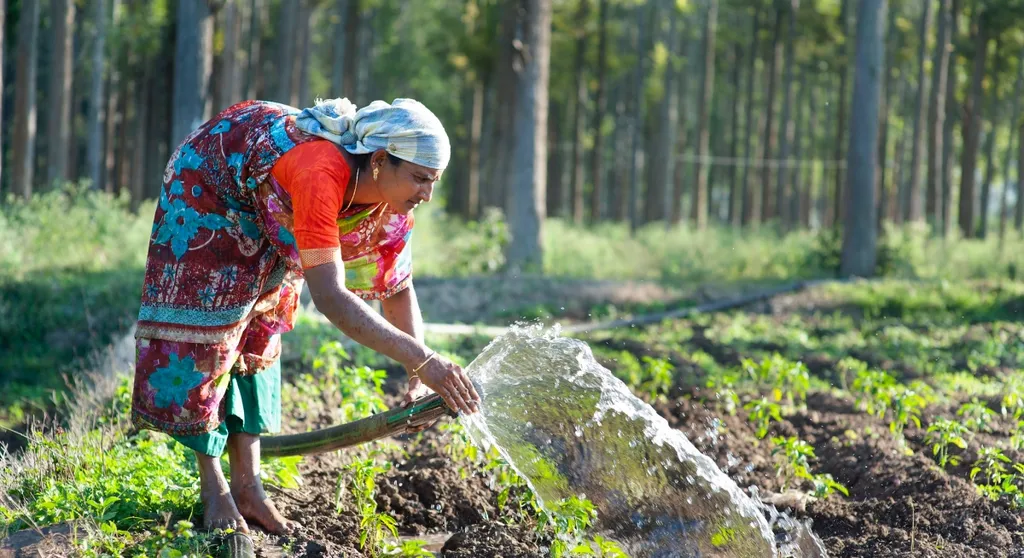In the heart of India’s diverse agro-ecological zones, a groundbreaking study is challenging conventional farming practices and offering a sustainable alternative that could reshape the agricultural landscape. Led by Gobinath Rajendran from the Indian Council of Agricultural Research (ICAR)-Indian Institute of Rice Research in Hyderabad, the research explores the potential of rice crop residue as a fertilizer substitute, aiming to enhance both yield and soil health.
The two-year field experiment, conducted across five distinct locations, tested six integrated nutrient management strategies, ranging from conventional fertilization to various combinations of reduced fertilizer doses with crop residues and microbial decomposers. The findings, recently published in *Frontiers in Soil Science* (translated as *Frontiers in Soil Science*), reveal a promising alternative to traditional farming methods.
Conventional fertilization (T1) consistently achieved the highest mean grain yield across all locations. However, the treatment involving a 25% substitution of recommended fertilizer doses with crop residues and microbial decomposers (T5) produced statistically comparable yields, even surpassing the conventional method by 7.6% at one location, Moncompu. “This indicates that we can maintain or even enhance yields while reducing our dependence on synthetic fertilizers,” Rajendran explained.
While some treatments involving higher levels of residue substitution incurred yield penalties, they exhibited superior yield stability across locations. This stability is crucial for farmers facing unpredictable weather patterns and soil conditions. “The key is finding the right balance,” Rajendran noted. “Our study shows that a 25% substitution level (T5) can be a sweet spot, offering both yield stability and improved soil health.”
The research also delved into soil nutrient dynamics, revealing that treatments with crop residue substitution improved soil potassium and organic carbon levels, despite some phosphorus depletion. “This is a significant finding,” Rajendran said. “It shows that we can enhance soil health and potentially reduce our reliance on synthetic fertilizers, which is not only more sustainable but also more economical for farmers in the long run.”
The study’s implications extend beyond the agricultural sector, with potential benefits for the energy sector as well. By reducing the need for synthetic fertilizers, this approach could decrease the energy required for fertilizer production and transportation. Additionally, recycling crop residues can mitigate the environmental impact of residue burning, a common practice that contributes to air pollution and climate change.
As the world grapples with the challenges of climate change and food security, this research offers a beacon of hope. It demonstrates that sustainable farming practices can coexist with high yields and improved soil health, paving the way for a more resilient and environmentally friendly agricultural future. “This is not just about improving yields,” Rajendran concluded. “It’s about creating a more sustainable and resilient agricultural system that can feed the world’s growing population while protecting our planet.”
With its compelling findings and practical implications, this study is set to shape future developments in the field of agriculture and beyond. As we strive for a more sustainable future, the insights from this research could prove invaluable in our collective efforts to build a greener, more resilient world.

